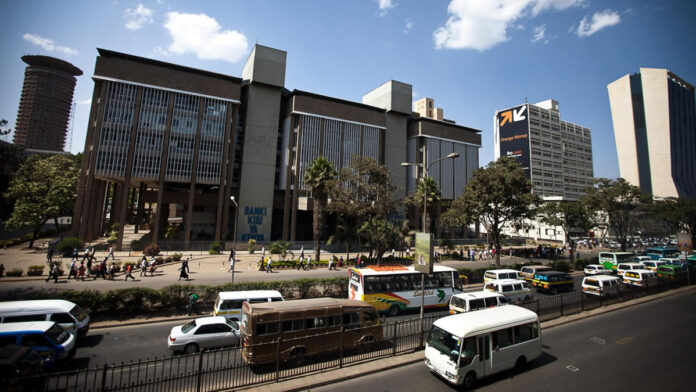The Central Bank of Kenya (CBK) wants to slash mobile money transaction fees for M-Pesa and Airtel Money users to ease the financial burden on Kenyans who heavily rely on mobile money for daily transactions.
This is part of the Kenya National Financial Inclusion Strategy 2025-2028 which seeks to reduce the average mobile money user’s transaction fees from KSh 23 to KSh 10. If implemented this will lower the cost of person-to-person mobile money transfers by millions of users.
Key Details of the Proposed Fee Cut
- Fee Reduction: The new rules will cut transaction costs by half, potentially lowering the average cost of a mobile money transaction by KSh 13.
- Targeted Areas: The proposed changes focus on person-to-person transfers which are the most common mobile money transactions. This will impact both M-Pesa (by Safaricom) and Airtel Money, Kenya’s two leading mobile money services.
CBK said high transaction costs have been a major barrier to accessing affordable financial products for many Kenyans especially in rural areas. Besides reducing cost this policy is meant to boost financial inclusion by encouraging mobile money adoption.
The Role of Mobile Money in Kenya
Kenya is one of the world’s leading mobile money markets with over 82 million registered mobile money accounts as of December 2024. Mobile money has become a tool for banking the unbanked enabling millions of Kenyans to access services like transfers, savings and insurance without traditional banking infrastructure.
Despite this success CBK has noticed signs of plateauing growth especially in rural and low-income areas where issues like infrastructure constraints, digital literacy gaps, and socio-cultural limitations (especially for women) are hindering full adoption.
Impact of the Proposed Policy
The Kenya National Financial Inclusion Strategy 2025-2028 will:
- Lower Transaction Fees: By reducing transaction costs mobile money services will be more accessible especially in underserved areas.2. Increase Usage: By reducing fees M-Pesa and Airtel Money could see more usage especially for advanced services like digital credit, insurance and savings products which have seen limited uptake due to high transaction costs and limited interoperability between providers.
- Financial Inclusion: With lower fees more Kenyans especially in rural areas will be able to engage with the digital economy which could lead to economic growth and reduce inequalities.
Why CBK wants to cap M-Pesa and Airtel Money fees
CBK believes high transaction costs have been one of the main reasons for stagnant growth in mobile money access and usage especially in underserved areas. It noted that the COVID-19 pandemic led to a temporary reduction in mobile money fees which saw a 97% increase in M-Pesa transactions in late 2020. CBK sees this as proof that lower transaction costs can spur growth.
Why CBK Wants to Cap M-Pesa and Airtel Money Fees
The CBK says high transaction costs have been one of the main reasons for stagnant growth in mobile money access and usage, especially in underserved areas. They pointed out that the COVID-19 pandemic led to a temporary reduction in mobile money fees and M-Pesa transactions increased by 97% in late 2020. The CBK sees this as proof that lower transaction costs spur growth.
The central bank also noted that while M-Pesa and Airtel Money are widely used, many users in rural areas still rely on basic services like person-to-person transfers and are not using more advanced mobile financial products.
M-Pesa’s Recent Fee Changes
In January 2025 Safaricom changed M-Pesa fees:
- Free transfers for amounts between KSh 50 to KSh 100.
- KSh 29 for transfers between KSh 101 and KSh 2,500.
- KSh 309 for higher withdrawals (between KSh 50,001 and KSh 500,000).
Despite these recent changes M-Pesa and Airtel Money are still critical for financial access in Kenya and the proposed cuts will make them even more affordable for the average Kenyan.
The Future of Mobile Money in Kenya
With 82.4 million mobile money accounts in Kenya the mobile money ecosystem is booming. The CBK’s proposed fee reduction will boost M-Pesa and Airtel Money adoption across all regions. But the CBK also recognized the need to address broader challenges like digital literacy, device ownership and interoperability between different mobile money platforms.
Key Takeaways:
- Fee Reduction: The CBK will cut M-Pesa and Airtel Money fees by up to 50%.
- Focus on Rural Areas: The proposal targets gaps in mobile money adoption especially in rural and low-income areas.* Stagnation: High fees are the main reason for stagnant mobile money usage.
- Financial Inclusion Strategy: This is part of the Kenya National Financial Inclusion Strategy 2025-2028 to increase digital financial services access.
Summary
If the CBK proposal goes through, Kenyans will save big on transaction fees and it will be a step towards full financial inclusion especially for rural and low-income areas.

